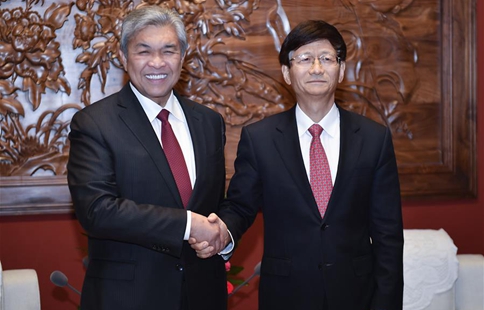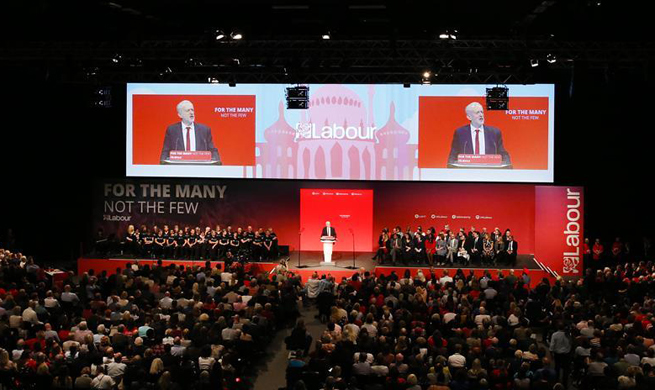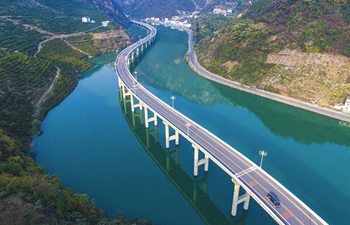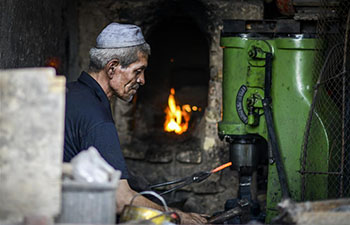BERLIN, Sept. 27 (Xinhua) -- Ambitious proposals for a reform of a European Union (EU) made by French President Emmanuel Macron have drawn mixed reactions from senior German politicians on Wednesday.
Angela Merkel's (CDU) official spokesperson Steffen Seibert told the press that the chancellor welcomed Macron's suggestions and shared his "principle finding" that the EU was in need of reform.
According to Seibert, the French president had delivered "a lot of material" which needed to be debated at an informal meeting of EU heads of state in Tallinn, Estonia on Thursday. The chancellery's spokesperson refused to comment on the substance of Macron's speech, noting merely that the details still needed to be discussed.
Speaking at Sorbonne University on Wednesday, Macron called for a "profound transformation" of the EU. Among others he suggested more military cooperation, the establishment of a shared finance minister, budget and parliament for the Eurozone, the foundation of an EU-wide asylum agency, as well as new taxes on technology firms such as Facebook and Apple. In many regards, the proposals are far more ambitious than changes envisioned by Merkel.
Seibert stressed in Berlin that there could be no doubt about the "absolutely pro-European" outlook of the chancellor which she would retain in a new German government. He pointed to a recently-outlined joint German, French, Italian and Spanish initiative to create a new framework for taxation in the European digital economy.
The German Free Democratic Party (FDP) was quick to voice skepticism over Macron's ideas, however. Senior FDP politician and Member of European Parliament (MEP) Alexander Graf Lambsdorff warned that Europe would not be strengthened by creating new budgets and "reducing the incentive for sound fiscal policy."
Lambsdorff said he was concerned that Macron placed too much trust in the state and new taxes, expressing the view that a Eurozone budget would create "exactly the wrong incentives."
Instead, the FDP wanted to place the focal point of reforms on the break-up of monopolies, privatization, and reducing bureaucracy to enhance the Eurozone's international competitiveness. Nevertheless, Lambsdorff described Macron's speech as brave and praised his proposals on refugee policy.
In contrast to the FDP, Green party (Gruene) leader Cem Oezdemir embraced most of Macron's reform proposals.
The strong Union desired by the French president was also in Germany's interest, Oezdemir told the public broadcaster ZDF. He urged his fellow German citizens to join forces with France and other European partners to realize some of the "exciting ideas" outlined by Macron.
Oezdemir was impressed by what he described as the "unusual" French demand to strengthen Brussels' role in European politics and supported calls to coordinate fiscal policy between Eurozone countries more closely. Whether there was a need for a Eurozone parliament alongside the European Parliament was a question of details which could still be sorted out.
The CDU/CSU, FDP and Green parties are widely anticipated to form a so-called "Jamaica" governing coalition following Sunday's national elections in Germany.
FDP leader Christian Lindner has repeatedly stated that rejecting a Eurozone budget and ensuring more fiscal stability in the currency union are conditions for his party joining such a constellation. His comments have hereby drawn attention to the potentially significant implications of ongoing negotiations for the fate of the wider EU and Eurozone.
During his speech, Macron reacted to the FDP's open hostility to his Eurozone reform proposals by saying that he "did not have red lines, only horizons."

















